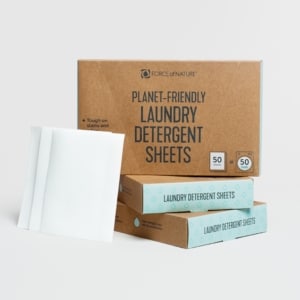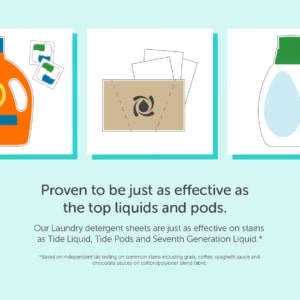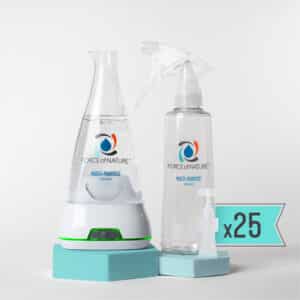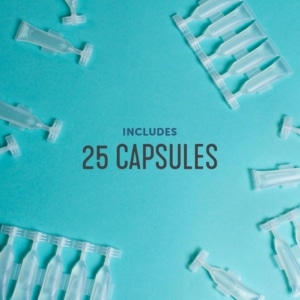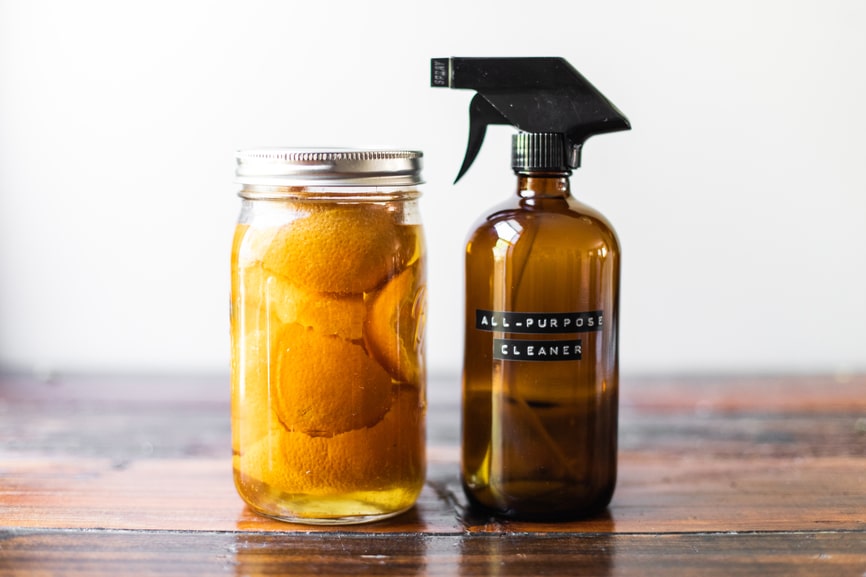
Simple, household vinegar has long been used as an alternative to toxic conventional cleaning products, but is it effective at killing viruses? Here are a few reasons why vinegar alone is not effective at killing viruses.
Vinegar & Viruses: Why Vinegar Isn’t Effective At Killing Viruses.
Vinegar Isn’t Powerful Enough To Kill Viruses
Even undiluted vinegar doesn’t kill viruses sufficiently to qualify as an EPA registered disinfectant, and it doesn’t kill dangerous bacteria like staphylococcus. Once you dilute vinegar as part of a DIY cleaning solution, you’re reducing the virus killing power even further. Vinegar is not an EPA registered disinfectant and not powerful enough to be used for sanitizing settings like childcare, schools, or even your own home. Vinegar does not kill 99.9% of viruses and bacteria, so you’ll want to swap vinegar for an EPA registered disinfectant when you’re trying to protect your family from viruses like COVID-19. And vinegar is not sufficiently effective to be on the EPA’s List N, the disinfectants approved for use against SARS-CoV-2, the cause of Covid-19.
Vinegar Can’t Kill Viruses in Child Care or School Settings
Due to a dubious level of commitment to hand washing and a penchant for unhygienic sharing practices, children are great germ vectors! This makes child care settings and schools a high priority when it comes to killing viruses, and vinegar isn’t potent enough to help in this area. While vinegar can be used to physically remove dirt and grime, vinegar does not kill germs thoroughly enough to be used as a disinfectant or sanitizer in schools. A great way to kill viruses and cut down on hitchhiking germs that are coming home from school is to spray items down daily with an EPA registered disinfectant like Force of Nature.
Vinegar Can’t Be Used To Kill Viruses On-The-Go
We’re often exposed to viruses in high-traffic areas where we’re coming into contact with droplets from other people and where it is challenging to keep our hands clean. Vinegar is not an effective sanitizer, so your best option is to bring a travel-sized EPA-registered disinfectant like Force of Nature, that you can use to spray down high-touch surface areas you might come into contact with.
Caution: Vinegar Can Be Caustic in High Concentrations
In order for vinegar to have a high enough acetic acid concentration to be effective at cleaning, it can also be caustic. It’s important to consider the concentration of vinegar when creating and using DIY cleaning products that contain vinegar. High concentrations of acetic acid can cause damage to eye tissue or burns to the esophagus and stomach if ingested, so be careful keeping these solutions around children and pets.
Force of Nature Kills Viruses Without Toxic Chemicals
Vinegar as a solo act might not be effective at killing viruses, but it’s great in an ensemble! At Force of Nature, we supercharge vinegar in our tiny appliance by combining it with salt and water, then using electricity to convert it into a multipurpose cleaner and EPA registered disinfectant that kills 99.9% of viruses and bacteria when used as directed. It’s on EPA’s list N, the disinfectants approved for use against SARS-CoV-2, the cause of COVID-19. And we know what you might be wondering – EPA expects all products on List N to kill all strains and variants of SARS-CoV-2. Just as great, Force of Nature does this without toxic chemicals, residues or fumes. It’s EPA registered for use in hospitals, ICUs, schools, daycares, veterinary clinics and more.
The Force of Nature technology has existed for years in industrial applications, for example in wound healing, eye care, and veterinary care products, where it’s made in industrial-sized tanks. We’ve sized it down for your countertop and your wallet! It replaces kitchen, bathroom, glass & rug cleaners, deodorizers, disinfectant sprays and wipes. And with reusable bottles, it’s planet-friendly too! Learn more about whether vinegar is effective for killing germs and whether vinegar is effective as a disinfectant.
